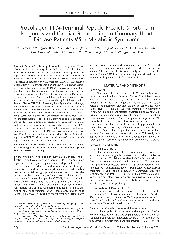摘要
Introduction: Many patients with coronary heart disease (CHD) also have metabolic syndrome (MS); however, little is known about the condition of cardiovascular remodeling in these patients. The objective of this study to explore the role of plasma procollagen III N-terminal peptide (PIIINP) in predicting the prognosis and cardiac remodeling in patients with CHD with MS. Methods: One hundred eight patients were classified into high and low PIIINP groups according to the median value of plasma PIIINP. Cardiovascular examinations including echocardiogram, carotid color ultrasound examination, coronary angiography and the 6-minute walking test (6MWT) were performed before and after a 1-year follow-up. Readmission for cardiac and cerebrovascular events was assessed during the follow-up period. Results: Plasma PIIINP level was significantly correlated with age, high-sensitivity C-reactive protein (hs-CRP) and body mass index in a multiple stepwise regression model. There was a positive correlation between the LnPIIINP and an increased left ventricular mass index in partial correlation analysis. The Cox proportional hazard model analysis indicated that the level of PIIINP, left ventricular ejection fraction and hs-CRP were independent predictors of readmission owing to cardiac and cerebrovascular events during the follow-up. A PIIINP value of 4.0 mu g/L was the best threshold value for determining the need for readmission. Conclusions: PIIINP levels rise with increases in age, hs-CRP and body mass index in patients with CHD with MS, and a high level of PIIINP indicates recent deterioration of cardiac remodeling and exercise tolerance and a poor prognosis.
- 出版日期2011-1
- 单位重庆医科大学
